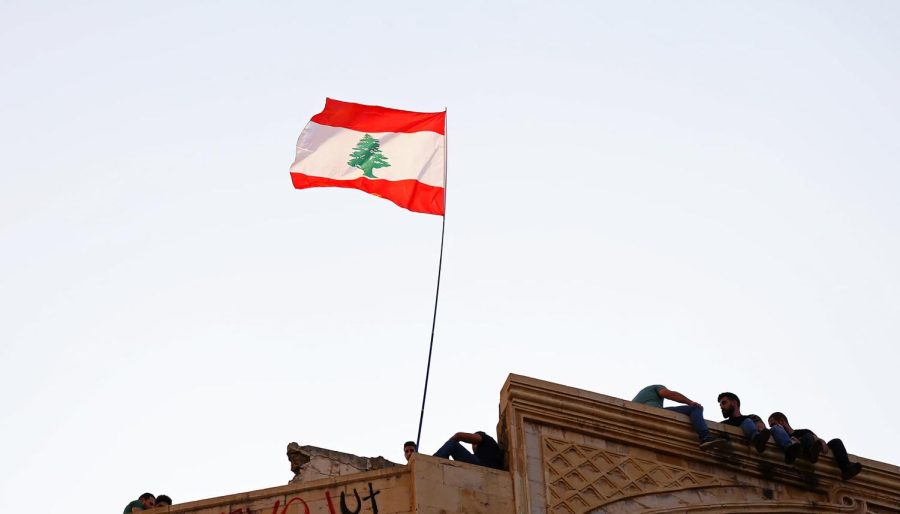Talk @ Northeastern – “Lebanon in Freefall: Government Corruption, Economic Collapse, and the Growing Demands on Civil Society”
The Lebanese flag on a building during protests in the country’s capital, Beirut. CC: Charbel Karam.
October 18, 2022
As Lebanon struggles with a corrupt and paralyzed government, economic collapse, and the aftermath of the Beirut explosion, civil society is under pressure to demonstrate leadership in the face of unprecedented demands.
The College of Social Sciences and Humanities at Northeastern University held a lecture recently and invited Lynn Zovighian, the co-founder and managing director of The Zovighian Partnership, a family-owned social investment platform that conducts community-centered research, designs and implements humanitarian and socioeconomic interventions. The Zovighian Partnership is recognized as an independent monitor of humanitarian aid entering the country.
The event took place at 909 Renaissance Park on Wednesday 5 October. More than 20 people attended the lecture.
Zovighian discussed the international donor community’s response to Lebanon’s spiraling crises and made the case for building the data, governance, and operational capacities of community-based organizations to engage local communities in meeting their own critical needs and shaping Lebanon’s future.
Depositors no longer have access to their bank accounts in Lebanon and the country has become a platform for creating and institutionalizing illicit private wealth with little accountability so far. This affects everyday Lebanese households, micro businesses, entrepreneurs, investors and private donors.
Zovighian used data to visualize the changes in demographics in Lebanon. She highlighted how in 2020, 84 percent of the population fell below poverty, and that today, 96 percent of the value of the country’s currency has been destroyed. Inflation stands at 120 percent and the economy has collapsed and is still collapsing. Zovighian added, “GDP per capita in real terms has contracted over 30 percent in the last three years.”
Civil society is predominantly having to pick up the pieces of a malfunctioning government and is one of the few employers and job creating institutions that are helping Lebanon. Civil society is the only distributor of funding and access to services for hospitals and the commodity industry, for example. However, it does not have access to guaranteed or sustainable funding.
Northeastern University Faculty Guest Maria Ivanova, Professor of Public Policy and Director of the School of Public Policy and Urban Affairs, discussed the issues in education as an essential part of these breakdowns in Lebanon. Most of the academic institutions in the country are unable to sustain the talents of their teachers nor provide a safe and healthy academic space for their children, she added.
Zovighian concluded by explaining that it is because of these failures why the Lebanese need the services of NGOs, grassroots private initiatives and citizens led initiatives to support the country now more than ever.
She said, “As a case study, as a learning environment, as an open lab, and I hate to use that language, it’s not fair, but the reality is that we (Lebanon) are a repository of a lot of experiences.” “By learning from history,” she added, “We can better create the future.”


